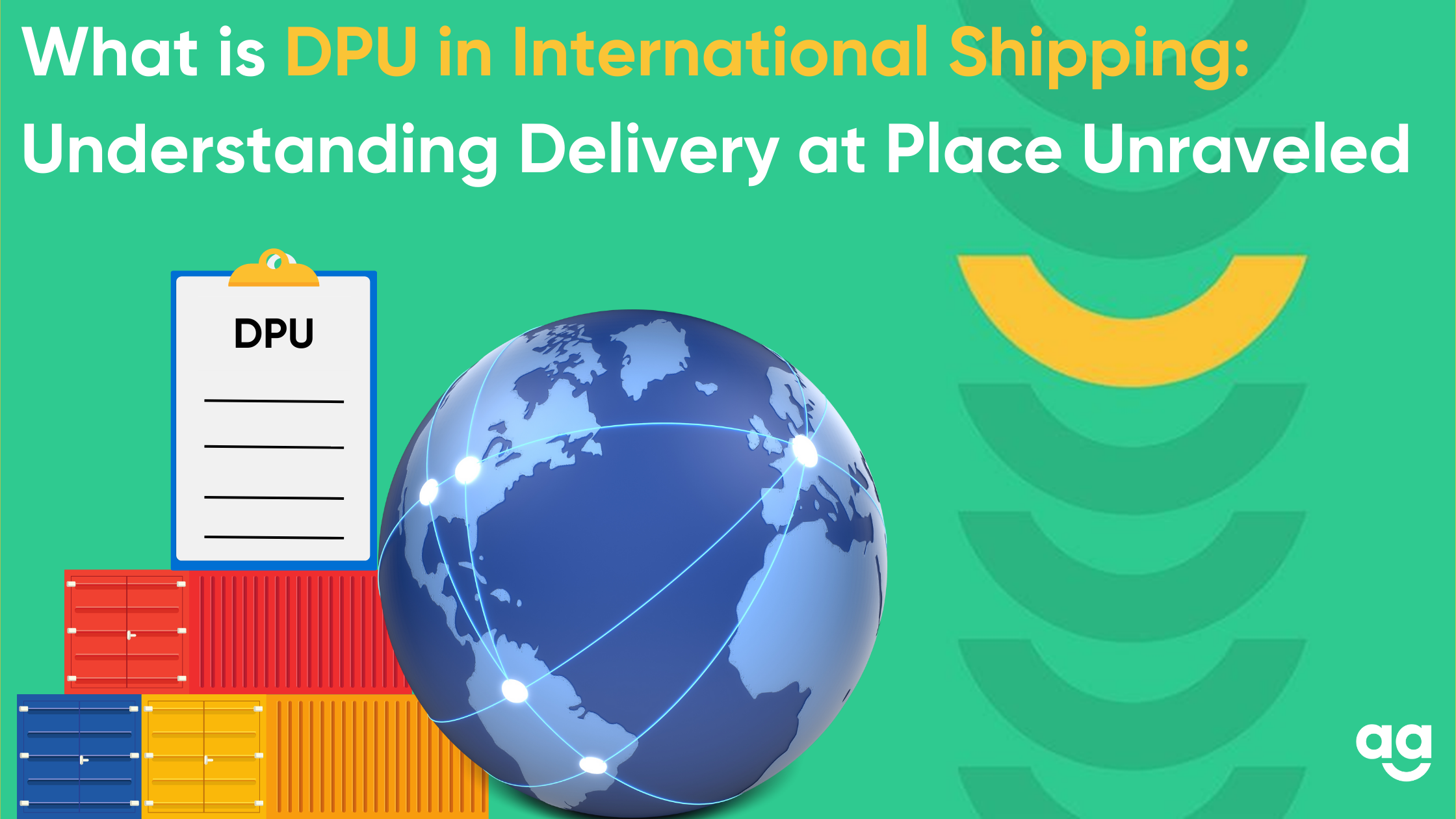Introduction
In international shipping, various incoterms define the responsibilities and obligations of buyers and sellers during the transportation of goods. One commonly used incoterm is DPU, which stands for Delivery at Place Unraveled. DPU simplifies the shipping process by clearly defining the point at which the seller’s responsibility ends and the buyer assumes control of the goods. This blog post will delve into the concept of DPU in international shipping, its significance, and how it impacts the parties involved.
Understanding DPU (Delivery at Place Unraveled)
DPU, or Delivery at Place Unraveled, is an incoterm that specifies that the seller is responsible for delivering the goods to a named place agreed upon with the buyer. This place could be a port, warehouse, or any other agreed-upon location. The seller is responsible for arranging transportation, export clearance, and delivering the goods to the specified destination. Once the goods are delivered, the buyer assumes responsibility for unloading, import clearance, and any subsequent transportation or costs.
Key Features of DPU
Transport and Delivery:
The seller is responsible for arranging and managing the transportation of the goods from the point of origin to the agreed-upon destination. This includes selecting carriers, arranging shipping documents, and ensuring timely delivery.
Export Clearance:
The seller is responsible for completing export clearance procedures, which involve obtaining necessary licenses, permits, and documentation required by the exporting country’s authorities.
Delivery at Agreed Place:
The seller is obligated to deliver the goods to the agreed-upon place, as specified in the contract. This could be a port, warehouse, or any other location defined in the sales agreement.
Unloading and Import Clearance:
Once the goods are delivered, the responsibility for unloading the goods from the transport vehicle and completing import clearance procedures shifts to the buyer. The buyer is responsible for obtaining any necessary import licenses, paying import duties, and organizing transportation from the delivery point to the final destination.
Benefits and Considerations of DPU
DPU offers several benefits for both buyers and sellers engaged in international shipping transactions. Here are some key advantages:
Clarity and Simplicity:
DPU provides clear guidelines for the responsibilities of both parties, simplifying the shipping process and reducing the risk of misunderstandings or disputes.
Risk Allocation:
DPU clearly defines the point at which the risk transfers from the seller to the buyer. This helps mitigate potential risks during transportation, such as loss, damage, or delays.
Cost Control:
With DPU, the seller has control over the transportation process, allowing them to negotiate favorable shipping rates and terms. The buyer, on the other hand, can assess and manage the costs associated with unloading, import clearance, and subsequent transportation.
Flexibility:
DPU allows parties to tailor the delivery location to their specific needs, ensuring convenience and efficiency in the shipping process.
However, it’s important to consider a few factors when opting for DPU:
Communication and Coordination:
Effective communication between the buyer and seller is crucial to ensure a smooth delivery process. Both parties should agree on the delivery location, timeframes, and any specific requirements.
Local Regulations:
It’s essential to be aware of the import regulations and requirements of the destination country. This includes understanding customs procedures, import duties, and any applicable restrictions or licenses.
Documentation:
Proper documentation, including transport documents, commercial invoices, and packing lists, must be accurately prepared and exchanged between the buyer and seller to facilitate smooth customs clearance.
Implementing DPU in International Shipping
To successfully implement DPU in international shipping, consider the following steps:
Contractual Agreement:
Include DPU as the agreed-upon incoterm in the sales contract or purchase order. Clearly define the delivery location, responsibilities, and any additional requirements
Transportation Arrangements:
The seller should arrange for the transportation of goods to the agreed-upon place, selecting reliable carriers and ensuring the timely delivery of goods.
Documentation Preparation:
The seller must accurately prepare and provide all necessary shipping documents to the buyer, including transport documents, commercial invoices, and any other required customs documentation.
Communication and Coordination:
Maintain open lines of communication with the buyer to coordinate delivery details, share tracking information, and address any questions or concerns.
Conclusion
Delivery at Place Unraveled (DPU) is an incoterm that defines the responsibilities and obligations of buyers and sellers in international shipping. Understanding DPU and its implications is vital for both parties involved in global trade. By clearly defining the point of delivery and the subsequent responsibilities, DPU helps streamline the shipping process, reduce risks, and ensure smoother transactions. When implementing DPU, effective communication, awareness of local regulations, and proper documentation are key to ensuring a successful and efficient international shipping experience.






 Shipping
Shipping







